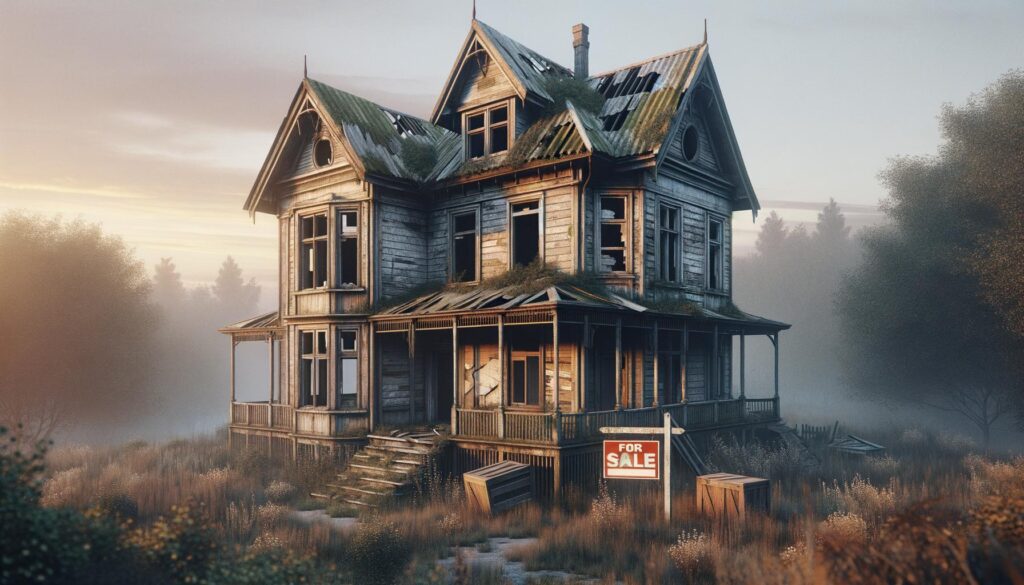Exploring Opportunities in Abandoned Houses for Sale

The Appeal of Abandoned Houses
Abandoned houses, often overlooked by mainstream buyers, offer remarkable opportunities for investment and home ownership. Typically priced lower than conventional homes, these properties attract buyers looking for budget-friendly options. The allure lies in their potential for renovation, allowing buyers to customize homes to their liking. Abandoned houses can also serve as an entry point into the real estate market for first-time buyers or those constrained by tight budgets.
Furthermore, purchasing an abandoned house can significantly increase the value of a neighborhood. A well-renovated abandoned home can transform a block, enticing other homeowners and investors to engage in neighborhood revitalization. This ripple effect gradually enhances community appeal and improves property values over time. For investors, the return on investment can be substantial, making abandoned houses a savvy choice for real estate portfolios.
Challenges to Consider
While abandoned houses offer potential rewards, buyers should be mindful of the challenges that come with these properties. One significant issue is the state of disrepair commonly found in such homes. Years of neglect may have resulted in structural damage, electrical issues, or plumbing problems. Thorough inspections are imperative to identify these issues and to assess the cost of repairs and renovations.
Buyers should also consider the legal and administrative challenges associated with abandoned houses. These properties often have complicated ownership histories, possibly involving liens or unpaid taxes that need resolution before transferring ownership. Engaging with professionals such as real estate agents, legal advisors, and contractors is crucial to navigate these complexities effectively. A clear understanding of local zoning laws and regulations is also necessary to avoid unforeseen obstacles during the renovation process.
Financing Abandoned Property Purchases
Financing an abandoned house purchase can differ from typical home purchases. Traditional mortgage lenders might be hesitant to finance homes in poor condition. However, several alternatives exist:
- Rehabilitation loans: Certain loans are designed specifically for homes needing repairs.
- Hard money loans: These are short-term loans from private investors focusing on property values post-renovation.
- Government programs: Programs like FHA 203(k) offer support for buyers investing in rehabilitation.
Each option has its pros and cons; thorough research and consultation with financial advisors will help buyers decide the best route forward. Maintaining a solid financial plan that accounts for unexpected costs is critical when embarking on such endeavors.
Making the Most of Your Investment
Once financing and legal matters are settled, the renovation process begins. This stage allows buyers to personalize their homes, potentially increasing their value. Key strategies include:
- Prioritizing essential repairs that address safety and structure first.
- Choosing energy-efficient upgrades that reduce long-term costs.
- Experimenting with design choices that enhance aesthetic appeal.
Creating a timeline and budget helps keep renovations on track. Collaborating with experienced contractors and designers can optimize outcomes, ensuring high-quality workmanship and effective use of resources. A successful renovation increases property value and livability, enhancing the neighborhood’s overall appeal.
Exploring Market Opportunities
With urban regeneration trends, many abandoned houses are situated in transitioning neighborhoods. These areas present significant market opportunities, as property values often rise as gentrification progresses. Buyers can benefit from early investments in such regions, capitalizing on potential appreciation.
Understanding the local real estate market is essential. Developing an awareness of nearby amenities, transportation links, and school districts can guide investment decisions. Networking with community members and local real estate agents provides insights into neighborhood developments and opportunities for strategic purchases.
Conclusion: Unlocking Potential in Abandoned Houses
Abandoned houses for sale offer unique opportunities for those willing to face associated challenges. While potential rewards are high, buyers must approach with careful planning and due diligence. A focus on thorough inspection, financing options, and strategic renovation ensures a successful investment. Ultimately, transforming an abandoned house can be a fulfilling experience, leading to personal satisfaction, financial gain, and community upliftment.
